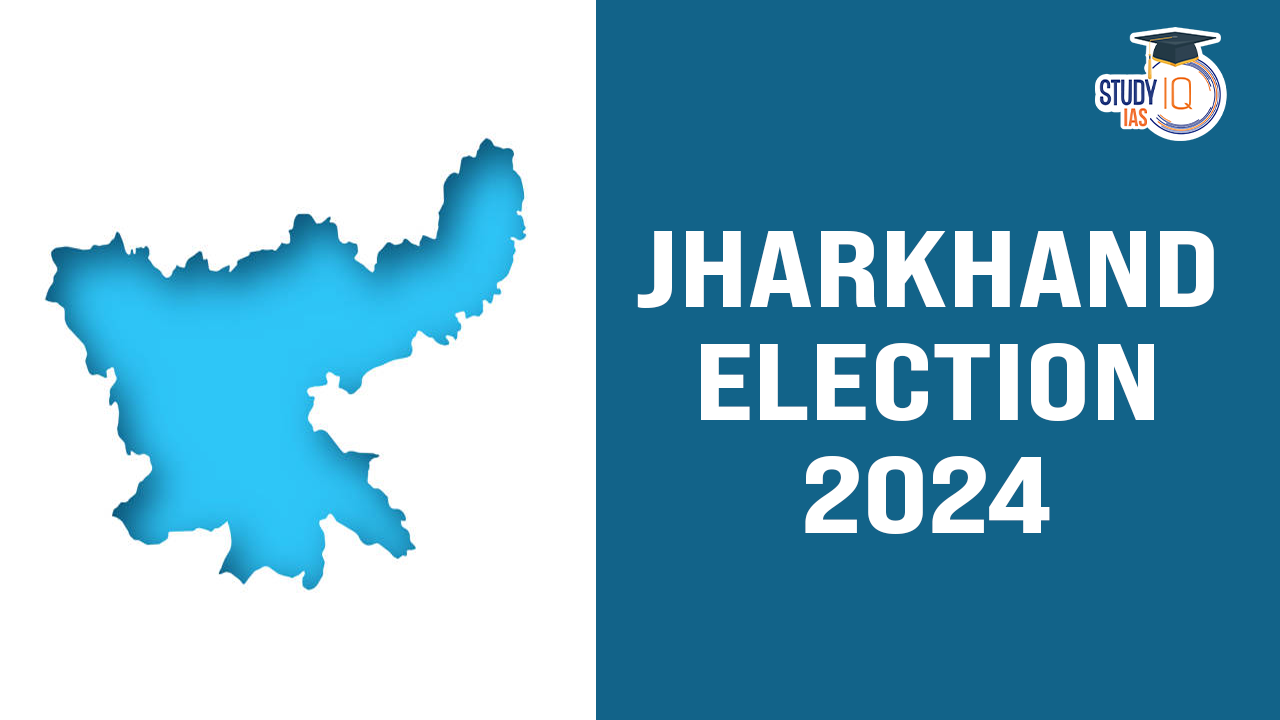Table of Contents
The 2024 Jharkhand Assembly Election is a significant political event for the state, as it will determine the future governance of this resource-rich, tribal-majority state in Eastern India. The election, scheduled to take place in phases, will decide the composition of the 81-member Jharkhand Legislative Assembly. This article covers key dates, major political parties, and the central issues shaping the election, providing a comprehensive guide for voters and political observers.
Important Dates for Jharkhand Assembly Election 2024
The important dates for the Jharkhand Assembly Election 2024 are as follows:
- Phase 1 Voting: November 17, 2024
- Phase 2 Voting: November 20, 2024
- Counting of Votes: December 3, 2024
- Result Declaration: December 3, 2024
These dates are key for voters, candidates, and political parties in Jharkhand as they prepare for the election process.
Candidates and constituencies
528 candidates, including 55 women and one third-gender candidate, are competing for 38 seats. Over 1.23 crore voters, including 60.79 lakh women, are eligible to vote at 14,000+ polling stations. Results for all 81 constituencies will be announced on November 23, alongside Maharashtra election results.
| Important Candidates and constituencies |
|
| Voting details: |
|
| Regions & Seats: |
|
| Political Campaigns: |
|
| Election Context: |
|
Political Landscape of Jharkhand
Major Political Parties
- Jharkhand Mukti Morcha (JMM):
- Leader: Hemant Soren (Current Chief Minister).
- Focus: Tribal rights, local development, and regional autonomy.
- Previous Performance: JMM has historically been influential, winning a significant number of seats in past elections.
- Bharatiya Janata Party (BJP):
- Leader: Various prominent figures including national leaders.
- Focus: Development, infrastructure, and national integration.
- Previous Performance: The BJP has been a major competitor in Jharkhand, winning several seats in the last elections.
- Indian National Congress:
- Leader: Various state leaders and national figures.
- Focus: Social justice, economic development, and anti-corruption measures.
- Previous Performance: The Congress party has seen a decline in its influence but is working to regain support.
- All Jharkhand Students Union (AJSU):
- Leader: Various local leaders.
- Focus: Youth issues, education, and student rights.
- Previous Performance: AJSU has carved out a niche among younger voters and is a significant player in certain constituencies.
- Other Parties and Independents:
- Smaller parties and independent candidates can influence election outcomes, especially in local contexts.
Recent Political Developments
The political atmosphere in Jharkhand has been marked by shifting alliances and emerging local issues. Key developments include:
- Tribal Rights Movement: A growing focus on protecting the rights of indigenous populations, especially concerning land and resources.
- Development Initiatives: Debates on infrastructure projects and employment schemes have taken center stage, influencing voter sentiments.
Electoral Process in Jharkhand
Voter Eligibility
To participate in the elections, ensure you meet the following eligibility criteria:
- Age: Must be at least 18 years old on or before the date of voting.
- Citizenship: Must be a citizen of India.
- Registration: Must be a registered voter in the electoral roll of your respective constituency.
Voting Mechanism
Voting in Jharkhand will utilize Electronic Voting Machines (EVMs), ensuring a transparent and efficient process. Key aspects of the voting mechanism include:
- Polling Booths: Designated locations where voters can cast their ballots.
- Accessibility: Efforts will be made to ensure polling stations are accessible to all, including the elderly and differently-abled voters.
Model Code of Conduct
Once the election dates are announced, the Model Code of Conduct will come into force, setting guidelines for political parties and candidates. This includes:
- Restrictions on campaign activities.
- Prohibition of announcements that could influence voters.
- Guidelines for public meetings and rallies.
Key Issues in the 2024 Elections
Voters in Jharkhand are expected to prioritize several critical issues during the election:
- Development and Infrastructure:
- Focus: Improvement in roads, healthcare facilities, and educational institutions.
- Importance: Voters are keen on candidates who can promise tangible improvements in their daily lives.
- Tribal Rights and Representation:
- Focus: Protecting the rights of tribal communities and ensuring their representation in governance.
- Importance: Given Jharkhand’s significant tribal population, this issue resonates deeply with many voters.
- Employment Opportunities:
- Focus: Strategies for job creation and skill development, especially for the youth.
- Importance: Economic stability and job security are crucial for many families.
- Corruption and Governance:
- Focus: Calls for accountability in governance and measures to combat corruption.
- Importance: Voter sentiment against corruption is strong, and candidates addressing these issues are likely to gain support.
Conclusion
The Jharkhand Assembly Election 2024 represents a significant opportunity for the people of Jharkhand to voice their opinions on governance, development, and social justice. As the election dates draw near, it is crucial for voters to stay informed about the candidates, their manifestos, and the key issues at stake. Engaging in the electoral process is vital for shaping the future of Jharkhand, and every vote counts.


 Serious Fraud Investigation Office (SFIO...
Serious Fraud Investigation Office (SFIO...
 Article 142 of Indian Constitution, Sign...
Article 142 of Indian Constitution, Sign...
 Pakistan-Occupied Kashmir (PoK): History...
Pakistan-Occupied Kashmir (PoK): History...





















